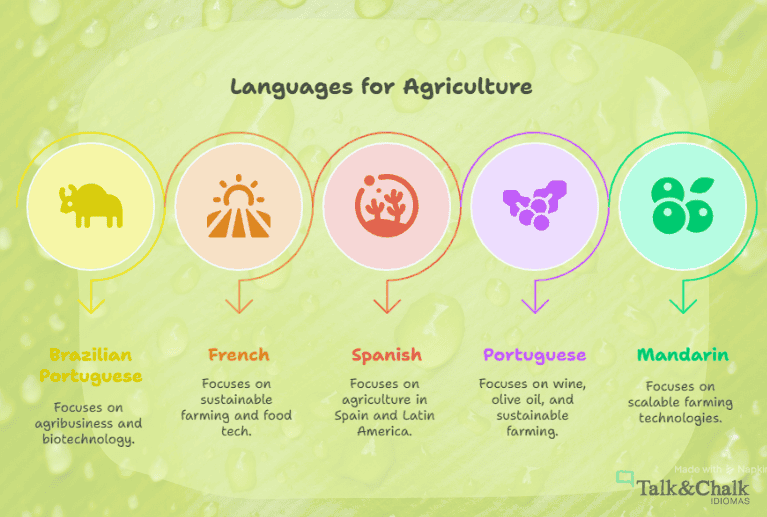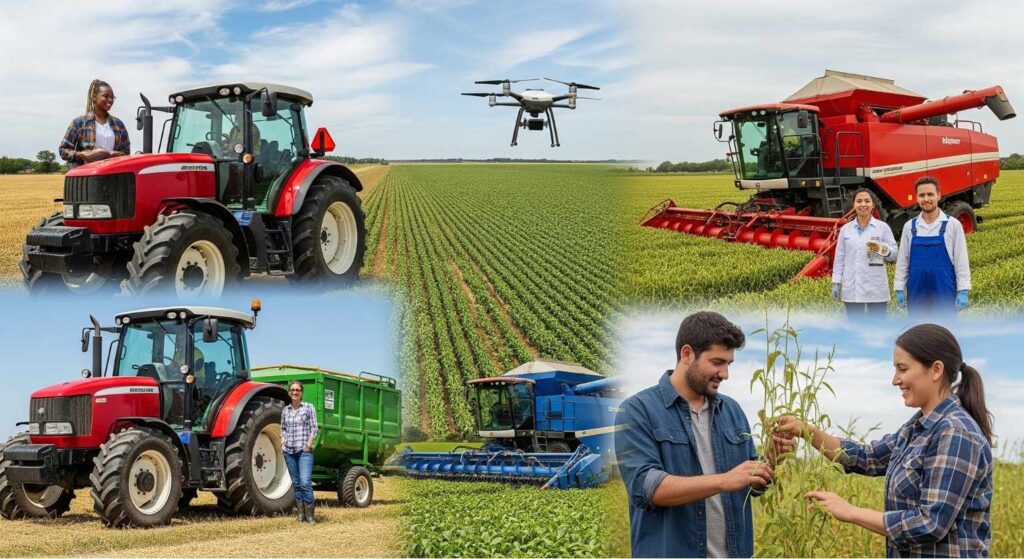Agriculture is no longer a local affair — it’s a global, innovation-driven industry. Whether it’s biotechnology, sustainable farming, or smart food systems, language matters when connecting to global agri-networks. Each region brings its own expertise and each language unlocks a sector of this growing ecosystem. Languages for Agriculture
Here are five strategic languages to grow with:
Brazilian Portuguese – Brazil is a world leader in agribusiness and biotech, especially in soy, meat, and crop innovation.
French – Spoken across Africa and Europe, French is key in sustainable agriculture, food security programs, and agri-tech collaboration.
Spanish – Vital for understanding farming practices across Latin America and Spain, with growing impact in exports and climate-smart agriculture.
Portuguese (Europe) – Particularly relevant in wine, olive oil, and sustainable Mediterranean farming, especially in Portugal and Lusophone Africa.
Mandarin – With China’s role in scalable agri-technologies, Mandarin is essential in the global conversation about automation, vertical farming, and food safety.
Language helps you understand the soil, the science, and the strategy. In modern agriculture, speaking the right one helps you harvest global opportunities.


